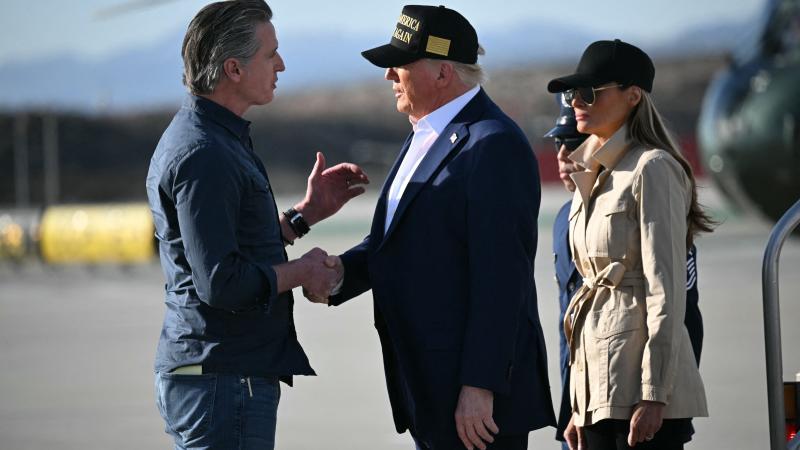Trump has wide power to overrule governors during coronavirus emergency, legal experts say
Dershowitz: 'The argument is going to be made that the economy is part of our national security and that a pandemic threatens our national security.'
Legal experts across the political spectrum argue that the coronavirus emergency gives President Trump wide power to overrule governors over conflicts about how and when to re-open the country after the coronavirus shutdown.
"When you get to national emergencies, viruses that obviously don't recognize borders and highly communicable diseases, the president's power becomes great," Harvard law professor emeritus Alan Dershowitz told Just the News. "The president has ultimate authority when it comes to reopening. That's more likely to happen on a case-by-case basis and region-by-region basis, and institution-by-institution basis."
President Trump on Thursday outlined what he called a "phased and deliberative approach" to reopening the economy after the coronavirus shutdown, giving wide leeway to governors to reopen on their own timelines.
"But the ultimate goal is to work together," said Dershowitz, a Democrat who said he voted for Hillary Clinton in 2016. "And that's plainly the right result for the governor and the president to work together and agree on something."
Attorneys David Rivkin and Lee Casey served in the White House Counsel’s Office and Justice Department under Presidents Reagan and George H.W. Bush.
They recently argued in The Wall Street Journal that Trump's powers were "vast" because of provisions under the Defense Production Act (DPA) passed by Congress in 1950.
"Federal power encompasses a broad power to regulate the national economy," they wrote. "Thus although the president lacks plenary power to 'restart' the economy, he has formidable authority to eliminate restraints states have imposed on certain types of critical commercial activity."
Dershowitz said the DPA was passed during the Korean War to address Soviet and Cold War fears and said the coronavirus presented a unique situation.
"Believe me, the argument is going to be made, that the economy is part of our national security and that a pandemic threatens our national security," Dershowitz said. "So, you know, national security doesn't only mean war."
Dershowitz said presidents from Thomas Jefferson to Abraham Lincoln and Franklin Roosevelt argued that during emergencies, the country may need to compromise constitutional rights, and "the courts have generally sustained it."
Dershowitz said he is presenting history about these issues in his forthcoming book, “The Case For Liberalism in an Age of Extremism,” which he said includes a lengthy chapter on civil liberties during current and historical pandemics.
"The Constitution's words, themselves, don't themselves resolve all these issues," he said. "There's going to be litigation, there's going to be dispute and perhaps some legislation. But, you know, Congress — the way it is — it's very hard to get legislation."
New York Gov. Andrew Cuomo on Friday said he needed more federal funding for coronavirus testing, and Trump took to Twitter to quickly shut down the governor.
"That’s a political dispute," Dershowitz said of this conflict. "Clearly the president would have the authority to mandate testing, but he's not claiming the authority. He's giving it to the state. So, it really doesn't present a legal issue. It's a political issue."
Dershowitz doesn't think Cuomo has a legal right to claim or sue the federal government and say that it needs to provide him with coronavirus testing or other resources.
"Now, I think it would be very hard to do," he said. "It's very hard to compel the federal government to exercise the power. Having the power doesn't mean you have to exercise it constitutionally.















